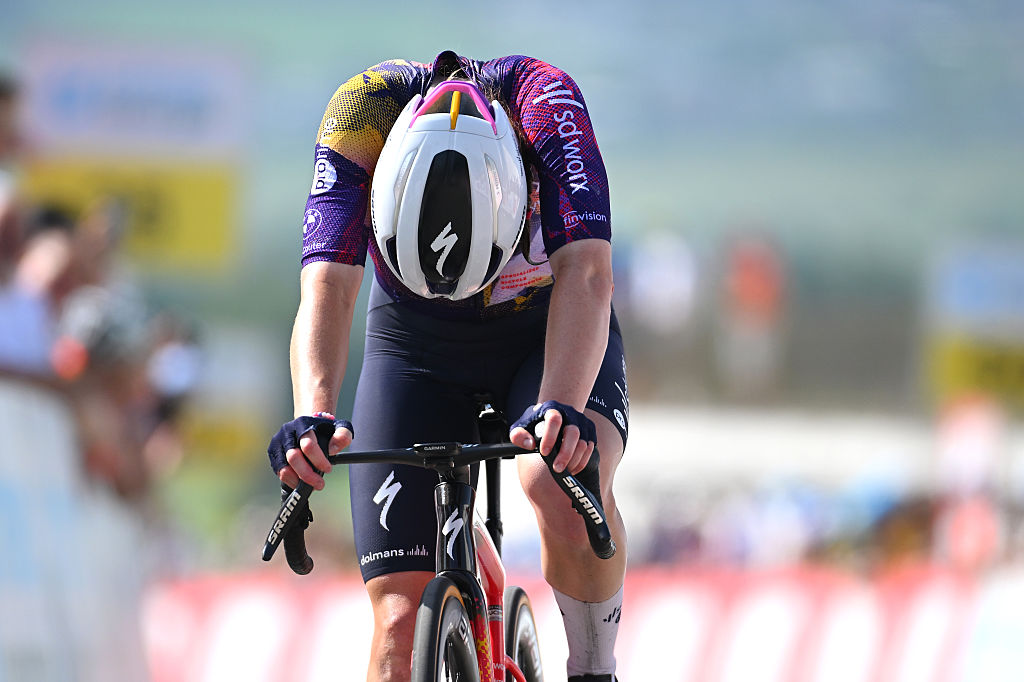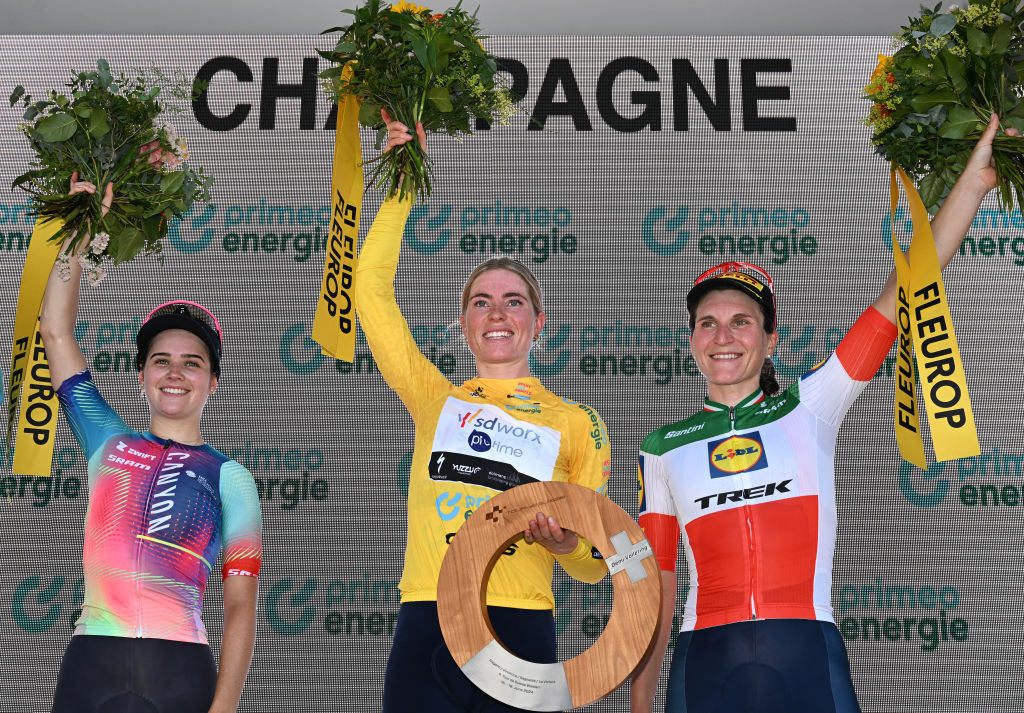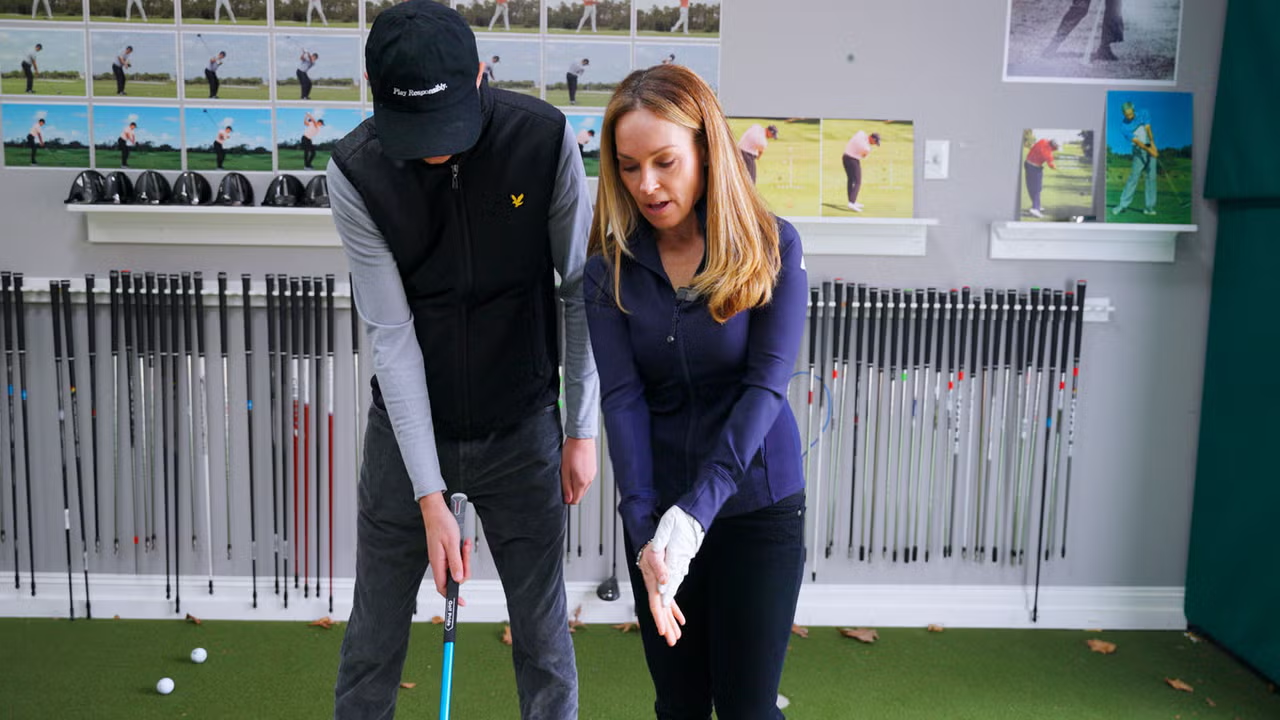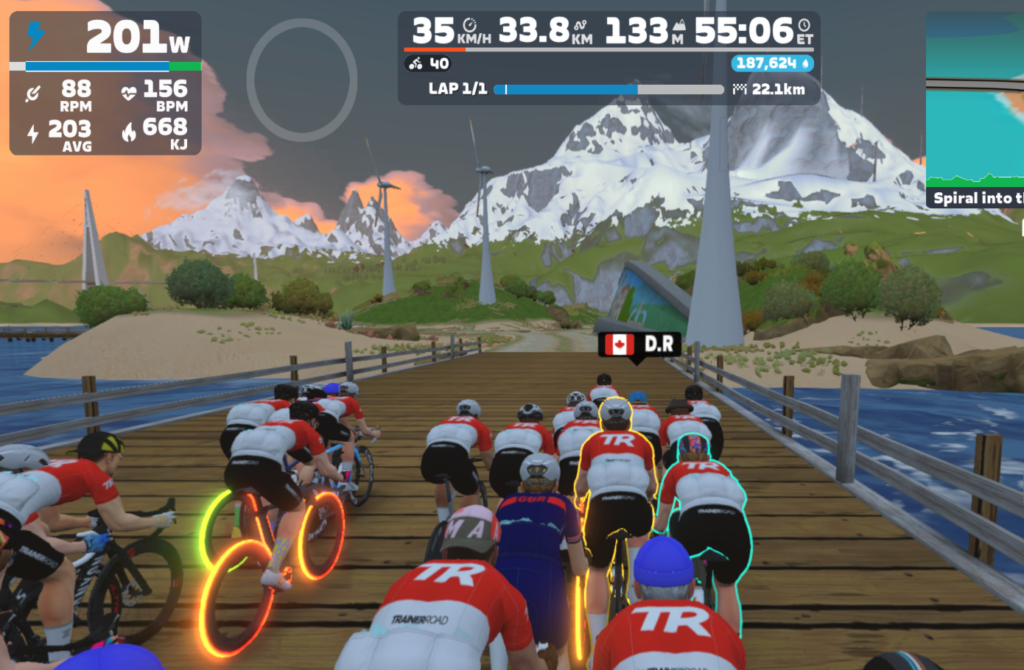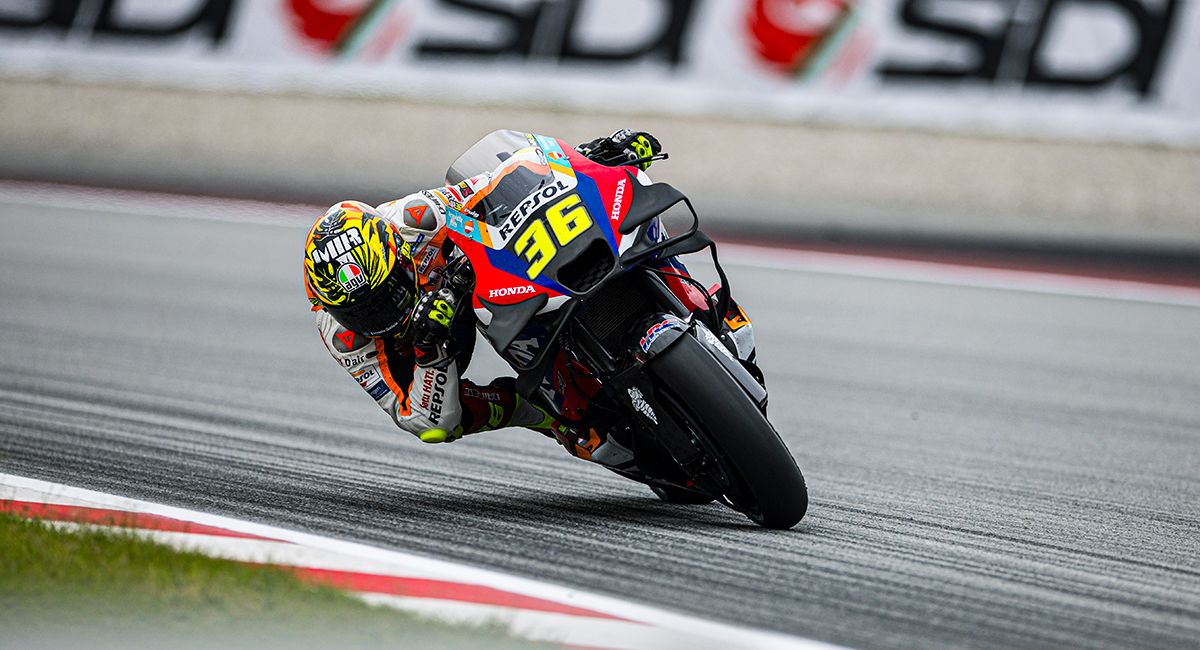There was never any question that 2025 was going to be a year of changed dynamics in the women’s peloton, given the raft of big-name team swaps, but the Tour de Suisse clearly demonstrated just how huge that shift has been. The once-repetitive storyline, which has played out for so many seasons of a dominant SD Worx-Protime, with the rest fighting for scraps, has been blown apart.
At this point of the season last year SD Worx-Protime had claimed the top spot on the general classification in all but one of the Women’s WorldTour stage races – the only one missing was the Tour Down Under title, and that was a given as they weren’t even on the start line.
So what’s the team’s 2025 tour win Women’s World Tour stage race tally so far? Nought.
That’s not for a second to say the team isn’t still a powerful force. The results are largely still extremely strong, and key stage race targets are still ahead, while the team ranking has also certainly been helped by a healthy dose of one-day wins on the WorldTour and beyond. Still, it is significant that the squad that has for years been able to comfortably call themselves the top women’s team had to give up the number one spot on the UCI team rankings to FDJ-Suez last month.
They may still sit in a more than respectable second but it’s a far cry from the rankings position they entered the Tour de Suisse in last year, then holding the top spot with a huge margin – in fact the then second-placed Lidl-Trek would have needed to add another 50 percent to their tally to challenge the dominant Dutch team.
What’s more, this year they have just walked away from the Tour de Suisse – a race they have won since it became Women’s WorldTour level in 2023 – without a rider even in the top 25 overall. Last year the worst result they got in a WorldTour stage race that they were on the start line of was second.
Meanwhile, three riders who in 2024 had been on the roster for the Dutch squad sat among the top four spots at the Tour de Suisse, from winner Marlen Reusser (Movistar), runner-up Demi Vollering (FDJ-Suez) and fourth-placed Niamh Fisher-Black (Lidl-Trek).
The latest race content, interviews, features, reviews and expert buying guides, direct to your inbox!
How did SD Worx-Protime fall so far in Switzerland?
Vollering, of course, is the key name that has been in the spotlight when transfers from SD Worx-Protime have been discussed but, as is evident from the list of riders above that finished near the top of the results tally at Tour de Suisse, that is only part of the story.
Losing 2023 winner Reusser and the rising Fisher-Black clearly compounded the impact. However, while the embarrassment of riches may be a little less evident this year at SD Worx-Protime, that doesn’t mean that they are without a significant array of jewels. They just don’t have quite as many top-notch backup plans or as much firepower to control the race with should one or two simultaneously lose their lustre.
Vollering was the top tour card for SD Worx-Protime last year, but Kopecky remains as a powerful card this year. The Belgian also swept up just as many stage race wins, netting four across the season – half being in the first part of the season. However, knowing that now her focus is on the Tour de France Femmes, she has not so far loaded any multi-day races other than Vuelta a Burgos in among her already heavy calendar of one-day racing.
That didn’t look to be too much of a problem as not only did the team have other options that included a returning Anna van der Breggen – who came third at Vuelta Femenina only a few months into her career re-boot – and Mischa Bredewold.
The 24-year-old had both this year and last come second to Vollering at Itzulia Women, so even without Reusser, Fisher-Black and the defending champion in Switzerland, the team lined up with a solid entry on the contenders list. They also had Blanka Vas to race alongside Bredewold, but it didn’t turn out as hoped with the squad put firmly on the back foot right from stage 1.
“The first day was indeed well below par,” said Bredewold in a team release after coming second in the tightest of sprints with Elisa Balsamo (Lidl-Trek) on stage 3. “Everyone had a bad day, and of course we were very disappointed. Maybe it was because of the heat, but it’s not something you can afford to dwell on.
“We knew we had to change our approach. That’s something we’re good at. After Martha Lach came second in the second stage, I finished second too. It’s a good result, but we could have done better. That’s why I’m a little disappointed.”
In the end SD Worx-ProTime, who had looked unbeatable at the race the last two years, scooping up the overall wins and three of four stages each edition, didn’t this time snare even one. Lach did walk away from the race with the Queen of the Mountains jersey and Bredewold was the best-placed rider from the team overall with 27th.
It was a far cry from an era where such was the dominance of the team, with its multiple plans, that at times it almost felt like much of the rest of the peloton had already resigned themselves to racing for second – not so any more. Through the years, SD Worx-Protime has long set an admirable standard for others to look up to and aspire toward but now that the team has had some of its strength plundered as others have in turn bolstered their own, it’s no longer just an aspiration.
The number of teams with riders on board that have proven they can win on the biggest stage, no matter who they are facing up against, has multiplied, making for much more unpredictable outcomes. That’s not only because of the SD Worx-Protime departures but also the shift of Elisa-Longo Borghini from Lidl-Trek – who managed to knock SD Worx-Protime off the top spot on the team rankings in 2020 – to UAE Team ADQ. The rest of the playing field has levelled up, and new rivalries are also emerging between former teammates, like that between Vollering and Reusser.
“I think it will keep being interesting,” said Reusser after claiming the edge in the Tour de Suisse.
And that can only be a good thing for women’s cycling.


